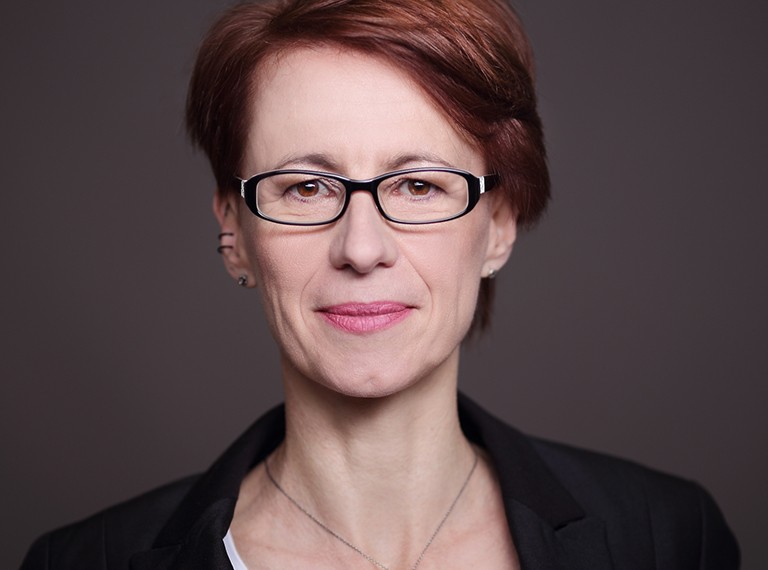 Katalin Fehér: "I love that the scope of the Applied AI Institute includes a focus on human-centric AI."
Katalin Fehér: "I love that the scope of the Applied AI Institute includes a focus on human-centric AI."Renowned artificial intelligence media scholar Katalin Fehér is a new visiting professor at Concordia's Applied AI Institute. The recent appointment comes via the European Union's Next Generation Internet (NGI) Transatlantic Fellowship Program.
Concordia is the only Canadian university among more than 30 North American universities and colleges to receive scholars through this inaugural call.
The program aims to support transatlantic research and entrepreneurship between North America and Europe by facilitating collaborations on next-generation internet initiatives. The goal is to shape the future internet so it reflects fundamental human values such as openness, inclusivity, transparency, privacy, cooperation and protection of data.
Fenwick McKelvey, co-director of the Applied AI Institute and associate professor in the Department of Communication Studies, is hosting Fehér.
"The institute is committed to exploring our international collaborations in Europe and beyond," McKelvey says. "Our success with the NGI program demonstrates our capacity and ability to bring in prestigious scholars to advance research at Concordia."
Fehér began working at the institute on March 11 and will stay for three months. She is the only researcher investigating the social dimensions of AI technology to receive the fellowship.
Fehér is an associate professor of social-cultural AI at the Ludovika University of Public Service in Budapest, Hungary. She is also the vice-chair of the European Communication Research and Education Association Mediatization Section and an Expert for the European Innovation Council and SMEs Accelerator Program.
Establishing a knowledge hub in AI ethics and human-centred AI
Fehér aims to create a knowledge hub at Concordia that focuses on responsible AI and AI ethics. She is leveraging her prior experience in developing an AI media research hub during her recent Fulbright fellowship in the United States.
This initiative involves connecting well-established AI experts in North America and Europe. Specifically, Fehér would like to work with communication technology experts who are well-versed in both the social science and computer science aspects of AI.
Fehér specializes in foresight research, meaning she examines future visions and expectations of technology. Her research also investigates social issues and changing business models related to AI media technologies.
As part of the knowledge hub, she will ask AI experts about their vision and expectations for the future development of Responsible AI.
She employs various future foresight techniques, such as horizon scanning and backcasting. Horizon scanning explores emerging trends for early detection, aiding in proactive, long-term planning. Backcasting, on the other hand, starts with envisioning a desired future and works backward to outline policies and programs linking that future to the present.
Fehér explains. "How can these technologies be trusted in one decade? What do a balanced future society, culture and economy look like?"
These pragmatic methodologies enable stakeholders to focus on long-term goals and systematically identify the steps needed to achieve them, which helps with policymaking and decision-making.
Fehér is very excited to pursue her research at the Applied AI Institute in the coming months.
"I love that the scope of the Applied AI Institute includes social, societal and cultural issues, with a focus on human-centric AI," Fehér says. "This is a great opportunity to think together."
Learn more about Concordia's Applied AI Institute.






